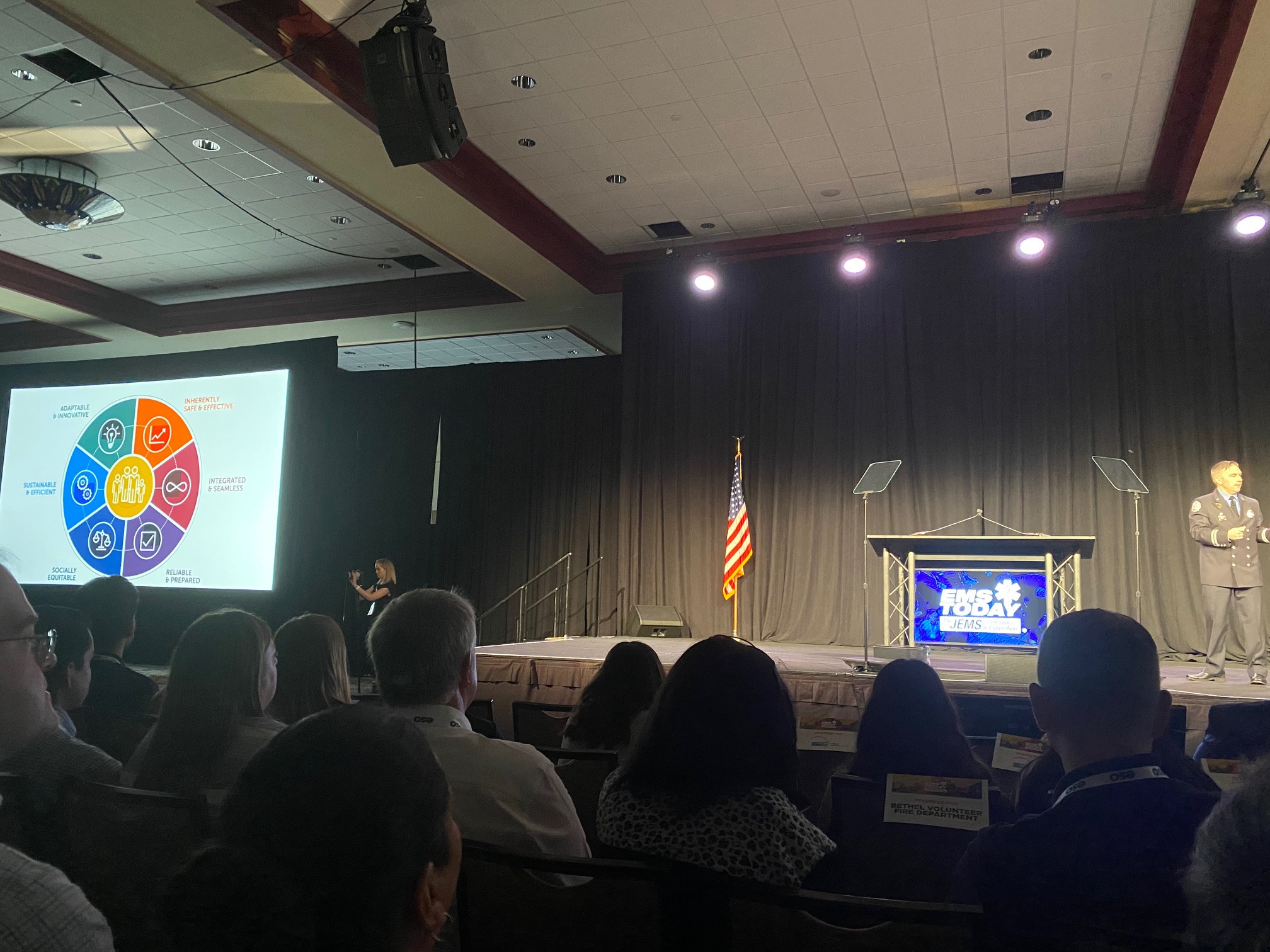EMS Agenda 2050, Federal Role in EMS Discussed at EMS Today
The unveiling of EMS Agenda 2050 a little over a year ago was as much a beginning as an end, as the real work will take place over the next few decades.
At EMS Today in Tampa, March 2-6, EMS leaders tackled how the profession can implement the powerful, people-focused vision. In the opening keynote, Rom Duckworth, a firefighter-paramedic, EMS educator and author inspired the audience and challenged them to move the profession forward together.
“My dream for EMS is for a diverse but unified service that is part of a whole system providing immediate care to anyone, anywhere, anytime, using tools and techniques that have been proven to improve patient outcome,” he said.
He told his fellow EMS professionals to take a look at EMS Agenda 2050’s six guiding principles and work in unison to make the people-centered EMS system described into reality. Although 2050 can seem a long way off, he said, that was no excuse to wait to start making changes and improving EMS for patients, communities and clinicians.
“I’ve been in EMS for thirty years and I can tell you, when you look back, it goes like that,” Duckworth said.
The conversation about achieving EMS Agenda 2050’s vision continued with an interactive session led by two key contributors to EMS Agenda 2050—Mike Taigman, the improvement guide for FirstWatch who served as the facilitator for the creation of EMS Agenda 2050, and Ernesto Rodriguez, EMS chief in Austin, Texas, and a member of the EMS Agenda 2050 Technical Expert Panel.
In the session, titled “Uncomfortable Challenges,” they addressed some of the principles of EMS Agenda 2050 that can be difficult to tackle, such as how bias and inequality impact service and outcomes.
In another session, Dr. Jon Krohmer, director of the NHTSA Office of EMS, talked about the critical role that federal programs play in supporting EMS systems at the state and local level. He addressed topics ranging from EMS education to the opioid crisis to pandemic preparedness and response, such as the current COVID-19 outbreak.
